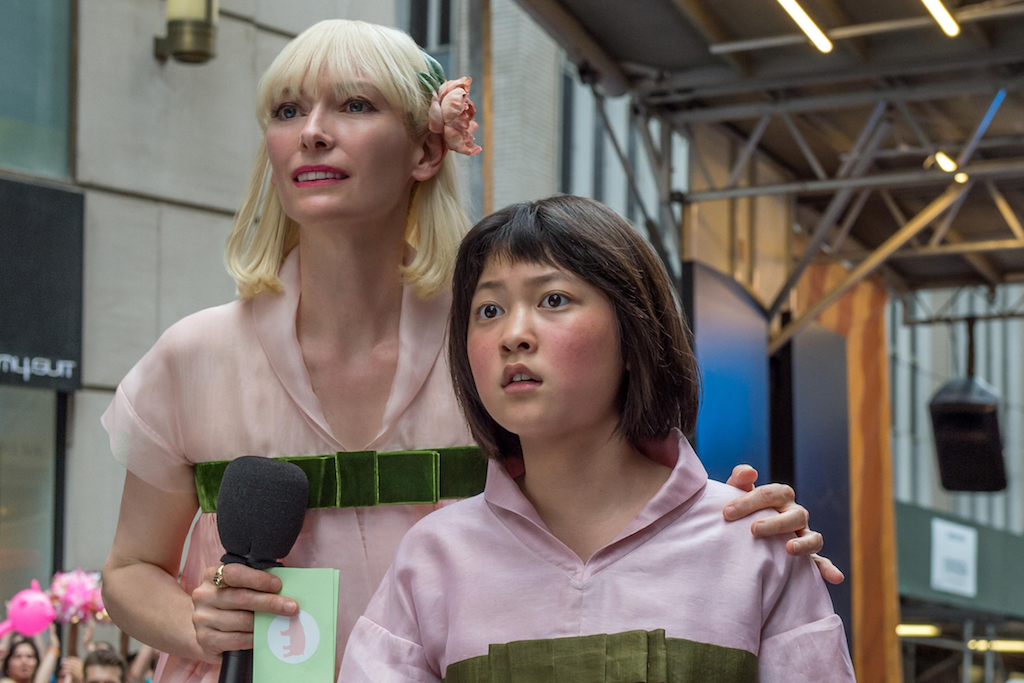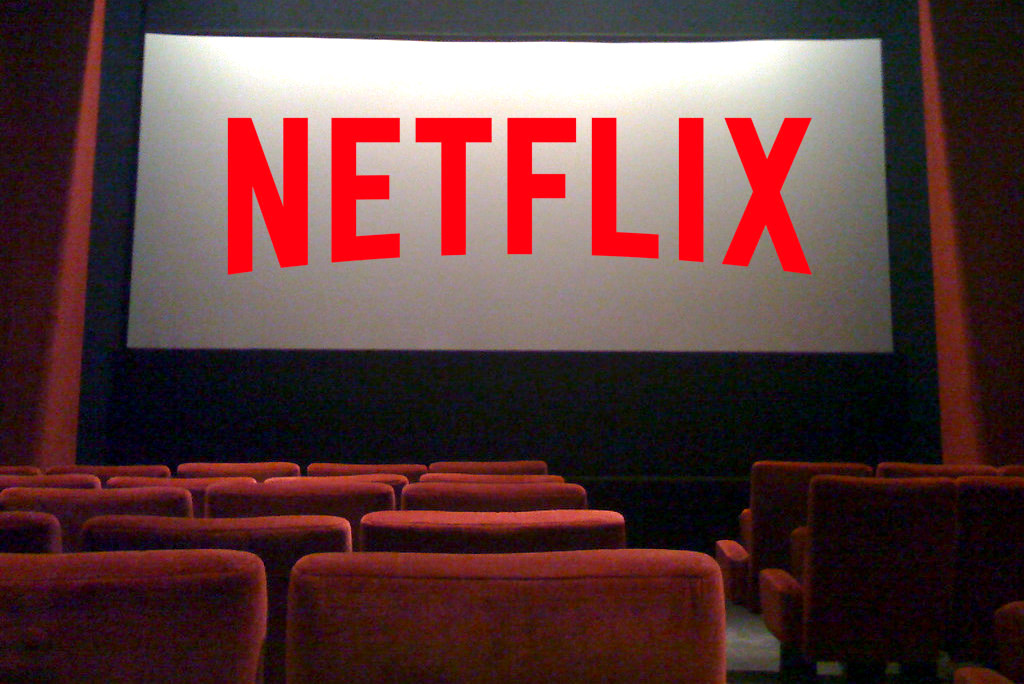Netflix’s ‘Okja’ Is Absolutely Bonkers, But In The Best Way Possible
Sure, it's a film about a giant pig. But it's also a singular film with a super-perceptive critique of these mad times.

This review is part of a wrap from Sydney Film Festival 2017. Read more here.
–
As the Netflix logo rose onscreen at the beginning of Bong Joon-ho’s Okja on closing night of Sydney Film Festival, the crowd around me laughed and applauded. What a jarring sight, and what a bizarre and telling moment in a rapidly shifting film culture.
But I left the cinema thankful that Netflix has spent a rumoured $50 million investment on producing this strange, wonderful film by a South Korean auteur. An American internet film, half in Korean subtitles, melding action, drama and comedy to satirise late industrial capitalism — what a time to be alive.
The following plot summary won’t make sense. That’s because Okja is a made-up word and a film about a giant pig. Lucy Mirando (Tilda Swinton) of Mirando Industries announces she has a grand solution for global hunger: breeding a totally natural, definitely-not-GMO species of super pig, of which every part can be processed and distributed in the form of jerky, franks and bacon to the world’s 7 billion hungry human mouths.
The agri-chem company pays a farmer in the spacious green mountains of Korea to raise one of the first of the pigs, a ploddingly cute character whom his daughter Mija christens Okja. But Mija refuses to be parted from her dear swine friend, and embarks on a mission — aided by the Animal Liberation Front (helmed by Paul Dano and soldiered by Australian Daniel Henshall) — to save Okja. Pretty soon, we realise that the whole super-pig enterprise is a scam to make us believe that global capital can solve the same terrible problems it has created by commodifying them.
Bong Joon-ho has given us Gothic revenge and apocalyptic action before, but nothing quite as fantastical as this. Okja doesn’t have the high streamlined concept of some of his earlier work, and skates across tones and genres a little oddly. The first half is weird and tough; until you realised you have to read the film like a fable; it’s like a live-action version of Spirited Away where a tough, innocent child goes on a wondrous, painful journey.
With his sixth feature, Joon-ho’s worldview has become totally recognisable: corporations and governments are untrustworthy and sociopathic, outsiders are heroes, children and animals are soulmates, and like in last year’s The Jungle Book remake, ecological equilibrium is finally suggested as a real possibility, saving us from the toxicity of nihilism.
In Okja, Joon-ho makes us think about why we value pretty flowers as part of the environment, but not animals; why we want to save trees from logging but are happy to continue unsustainable animal farming practices. Many will see this analysis as bonkers. But I feel this is a quite singular film with a super-perceptive critique of these mad times.
–
Okja is on Netflix now.
–
Lauren Carroll Harris has been published in Guardian Australia, Metro and Meanjin. She tweets from @LCarrollHarris.
